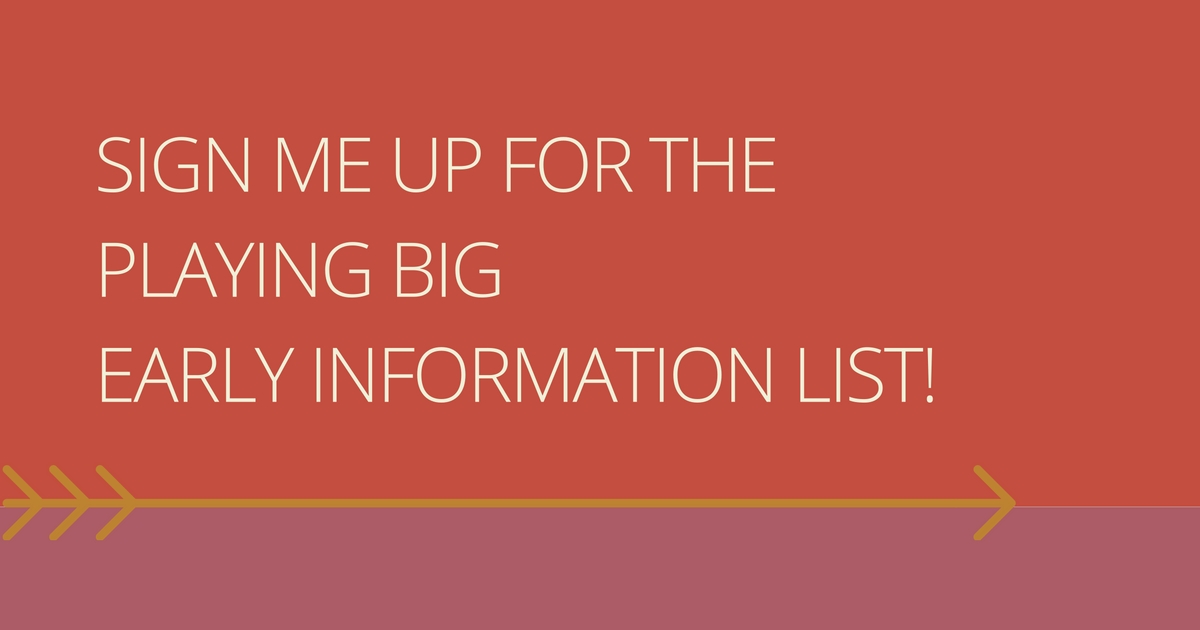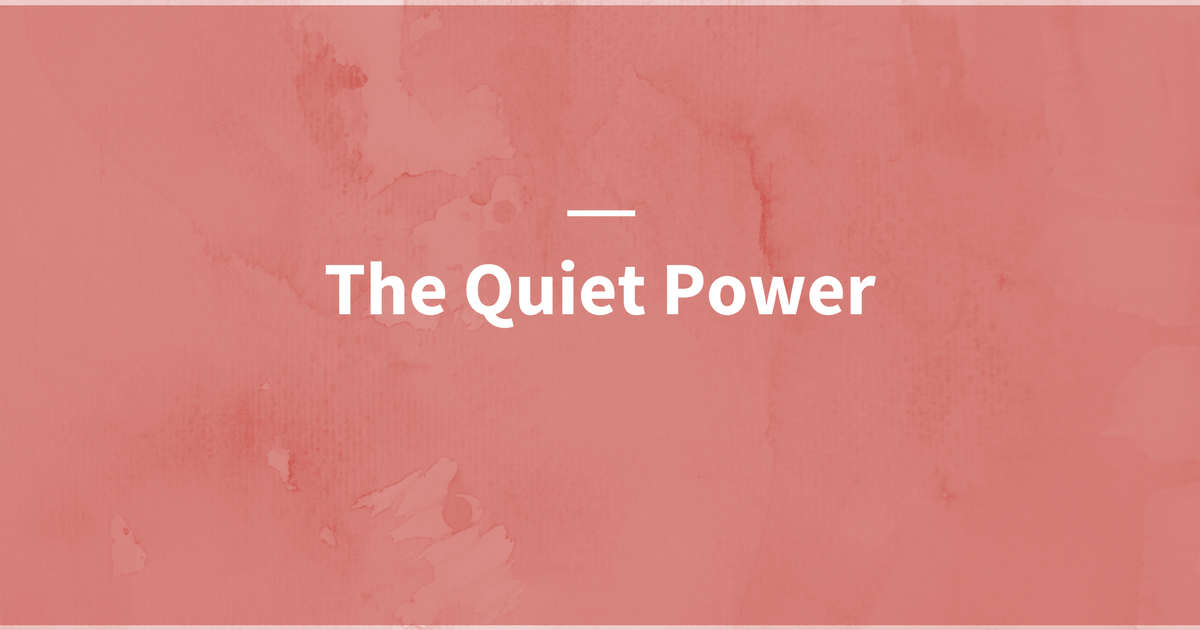You might remember my conversation with Whitney Johnson a few years back. I always appreciate her substantive exploration of how women can craft more fulfilling careers, and her unique blending of thinking from the fields of business and psychology.
In the audio conversation below, we talk about her fascinating career path – from music to Wall Street finance to author. Today, I’m excited to share with you two of the many helpful ideas from her new book, Disrupt Yourself. These two provoked big aha moments for me.
1. A New Way of Thinking About Constraints
“Whom the gods wish to destroy, they give unlimited resources.” Those words, written by Twyla Tharp, stopped me in my tracks. They kick off Whitney’s fabulous chapter on the positive power of constraints.
We assume that constraints limit us. That the small amount of time you have to work on a passion project, for example, is a problem. Having only a little knowledge about a topic you want to write about, is a deficit.
Whitney shares in her book how when it comes to creativity and innovation, constraints often help us. The fastest growing startups, it turns out, aren’t those who got ample funding. They’re the bootstrapped ones that operated in an environment of constrained financial resources. Other research shows that too much time or even lots of buy-in from others around a project diminishes a person’s ability to do the project.
Of course, there are dire constraints that cause human beings all kinds of suffering, and yes, we want all human beings to be liberated from those kinds of constraints.
But there are also all kinds of non-dire constraints, particularly in our work, that we think of as negative, but that actually can be helpful. I’ve definitely seen this in my own career. The blog posts I’ve written that have been the most well-received are the ones I’ve written in the shortest amount of time. Having less time in general, now that I’m a parent, has helped me stop over-thinking things and being perfectionistic. I was never more creative as a writer than when I was given a specific prompt – a constrained topic – to write about everyday through a semester in college. And it was an unexpected constraint on technology – a venue with no projector or wired mic – that helped me give the most emotionally connected, flowing, and honest speech I’ve given in my life.
What constraints in your life or work can you think about in a new way? How could they help you?
2. “For the risk averse who are trying to convince themselves to try something new, the trick is not to focus on what will be gained by venturing forth, but to instead focus on what might be lost by standing still.”
When I read these words in Whitney’s new book, I gasped out loud. I suddenly understood my own experience in a new way. Many of you have heard me tell the story of deciding to embark on the career path I’m on now. A pivotal moment happened for me as I was sitting in my living room, up in the middle of the night, thinking about why I was feeling unhappy and what I really wanted.
I had the thought that the next few decades – the central ones in my career – could fly by very quickly as I worked this job with lovely people, that I liked well enough day-to-day, that paid well, and that allowed me to have a balanced life. However, I realized that night that at the end of those decades, I would look back and know I’d been more loyal to my fears than to my dreams.
It was that thought – of the pain and regret I’d feel down the line if I stayed on my current path – that pushed me to do something different. That’s exactly what Whitney is describing in the quote above. Maybe that’s true for you too – that thinking or writing about the downside of not going for your more authentic life (rather than upside of going for it), will help move you into action.
Listen as Whitney and I chat about this and much more – press play or download the audio file below. And learn more about Whitney Johnson’s new book, Disrupt Yourself, here.
Love,
Tara







Thanks for sharing your interview with Whitney and your thoughts about the risk of staying in your same comfortable career path. I agree wholeheartedly. It is the fear I have of regret at the end of my life that propels me to move past my current fears.(not easily I might add…)
One of my favorite quotes is by poet/activist Audre Lorde:
“when I dare to be powerful, to use my strength in the service of my vision, then it becomes less and less important whether I am afraid.”
Getting ready to order Whitney’s book now. Thank you Tara for introducing her to us.
Hi Tara,
I really enjoyed this, thank you so much for the introduction and the reminder not to be “more loyal to my fears than my dreams”. You inspired me today